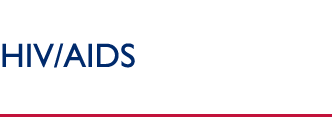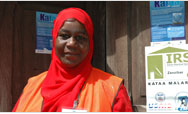Injection Safety
 |
| |
Contaminated needles have been implicated in the spread of
HIV/AIDS.
Source: © 2002 Amira Roess, Courtesy of Photoshare |
For the past several years, the U. S. Agency for International Development has recognized the significant role of injection safety in preventing disease transmission. Through support of innovative interventions, USAID has demonstrated consistent leadership and commitment to reducing the global burden of unsafe injections.
HIV/AIDS: Recognizing the critical intersection between transmission of HIV and unsafe injection practices, USAID provided funding for the 2003 International Conference on AIDS and STIs in Africa so that stakeholders could learn how to prevent HIV transmission in health care settings through the safe and appropriate use of injections.
More recently, as part of the broader approach to preventing seven million new HIV infections through the President’s Emergency Plan for AIDS Relief, USAID and CDC have begun to design interventions that will reduce the burden of HIV transmission due to unsafe injection practices in health care settings. With careful and focused attention, HIV transmission through unsafe injections can be eliminated as a significant mode of HIV transmission.
SIGN: In 1999, USAID joined with international partners to form the Safe Injection Global Network (SIGN), currently housed at the World Health Organization. USAID has worked with SIGN and others to document the extent of the unsafe injection practices, address injection device security, and examine the cost effectiveness of injection safety interventions.
Other USAID support of injection safety includes:
- Assessments of Injection Practices—USAID has supported the development of a specific health facility assessment tool that examines the extent of unsafe injection practices. The tool, commonly referred to as “Tool C”, has been used in more than 20 countries. USAID support has directly contributed to the use of “Tool C” to document injection safety practices in Senegal, Guinea, and Uganda to aid in the development of safe injection policy in those countries.
- Infection Prevention Training—USAID has assisted health care providers to develop safe injection practices through infection prevention training programs in a number of countries, including Burkina Faso, Ghana, Guinea, Kenya, Malawi, Mali, Senegal, Uganda, Haiti, Nepal, Philippines, and Ukraine. These courses include basics on disease transmission, safe injection practices, universal precautions, and waste disposal.
- Quality Assurance—USAID has provided technical assistance in quality assurance to SIGN, focused on established principles to produce injection standards that are not only scientifically sound, but which also are designed to actually change the behavior of providers. Safe injection practices are also supported by a wide range of USAID assistance and research to introduce quality assurance as an integral component of health care.
- GAVI—While leading the effort which resulted in the Global Alliance for Vaccine and Immunizations (GAVI), USAID has invested millions of dollars to improve the safety of immunization injections in the developing world. The U.S. contribution in support of GAVI has increased annually, from $48 million in 2001 to $53 million in 2002 and $58 million in 2003 – resulting in a total U.S. contribution over the past three years of nearly $160 million. It is estimated that as many as 300,000 deaths will be prevented because of the resources provided through GAVI’s financing mechanism thus far.
- Single-Use Devices—Recognizing the need for new technologies to further enhance injection safety efforts, USAID has spearheaded the development and introduction of a family of single-use injection devices. USAID is also developing and introducing systems for safely disposing contaminated needles through its partnership with the Program for Appropriate Technologies in Health.
- Bundling—Depo-Provera, the only injectable contraceptive commodity that USAID regularly supplies, is “bundled” with syringes that are automatically rendered inoperative after use and specially designed boxes to improve the safety of immediate disposal. USAID is the first development program in the world to physically bundle an injectable contraceptive commodity with auto-disable syringes and safety boxes, setting a new global standard for ensuring adequate supplies to provide safe injections.
USAID
Awards $6 Million to Support Medical Injection Safety Programs - 5/26/04
January 2004
|


